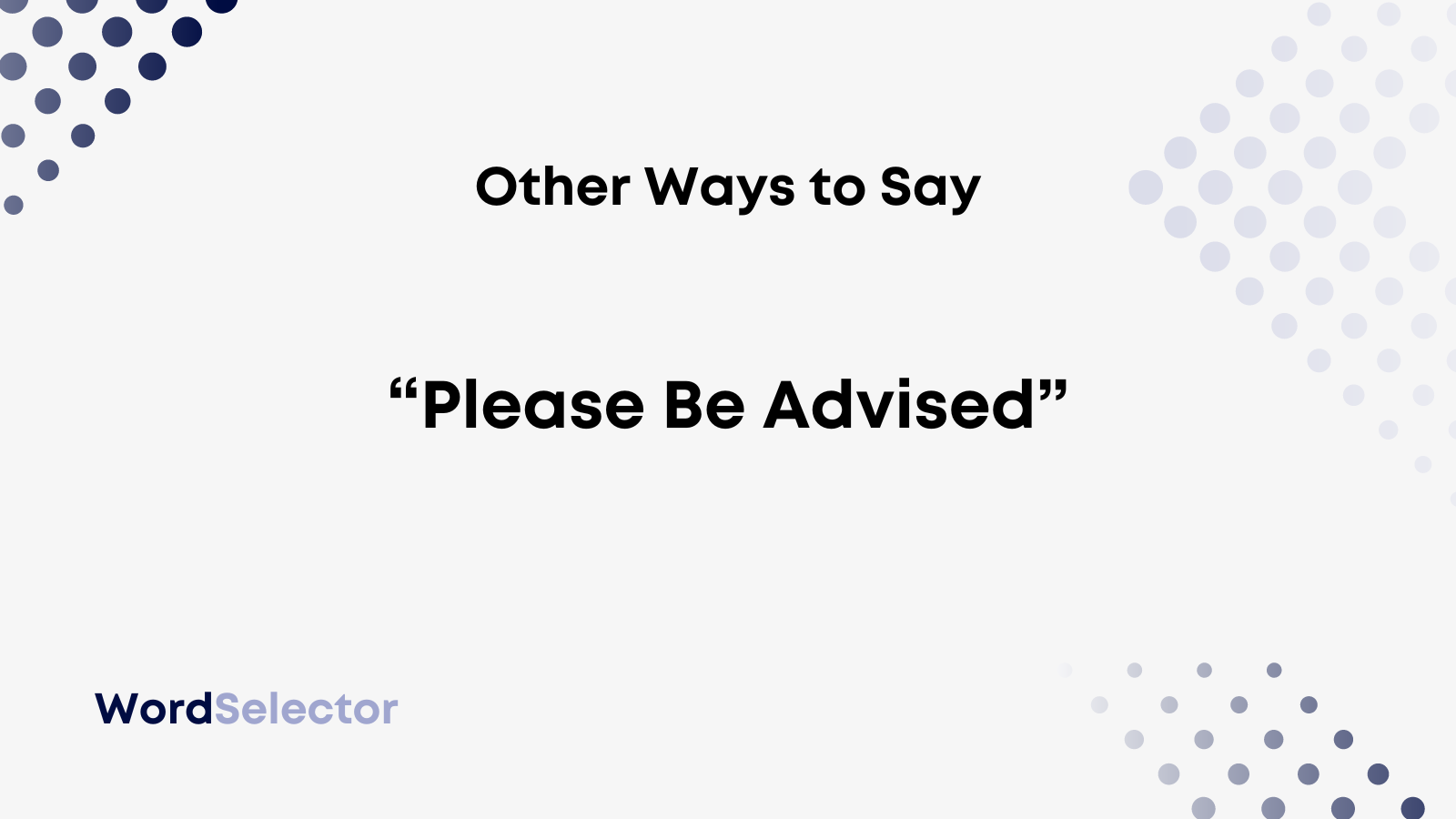If you want to stress that some information is very important but think that “please be advised“ is a little overused, read on!
In this article, we provide a list of formal and informal synonyms for “please be advised.” Moreover, we consider the correctness of the original phrase. Is it grammatically correct?
Other Ways to Say “Please Be Advised”
- Kindly note
- Keep in mind
- Take note
- Please note
- It should be noted
- Please be aware
- Please be mindful
- Take heed
- Bear in mind
- Please be informed
- Beware
- Consider
- For your information
- Please be notified
- It’s important to note
- Please pay attention
- Don’t forget
- Just so you know
- You should know
KEY TAKEAWAYS
- The phrase “please be advised” is grammatically correct and a suitable phrase to precede important information in formal settings.
- As a formal alternative to “please be advised,” you can say “kindly note.”
- “Keep in mind” is a suitable informal alternative.
Don’t click away! We still need to unpack our favorite formal and informal synonyms for “please be advised.”
Afterward, we’ll discuss the correctness of the original phrase. What does it mean anyway?
Kindly Note (Formal)
“Kindly note” is a great formal synonym for “please be advised.” After all, the inclusion of “kindly” makes this phrase as polite as the original.
Additionally, this phrase is concise and perfect to use in informative emails with colleagues, clients, or customers.
The original phrase, “please be advised,” is just as effective in formal settings. However, it never hurts to change up your wording from time to time to keep your correspondence diverse.
Finally, let’s see this phrase used in an email example:
Dear Valued Customer,
Kindly note that we will be closed over the long weekend.
We apologize for any inconvenience.
Warm regards,
Company XXZ
Keep in Mind (Informal)
Another way to say “please be advised” is simply to say “keep in mind.” This is an effective phrase to use in informal circumstances when supplying important information.
This phrase is less explicitly polite and more casual. Therefore, we wouldn’t recommend using it when engaging with clients or customers, as it may come across as demanding.
However, when issuing instructions to trainees or others in the workforce, it’s perfectly suitable. It lacks the overall urgency of the original phrase, and you can use it when you are giving someone feedback.
Finally, consider the following email sample:
Dear Dineo,
Thank you for sending these over.
Keep in mind, however, that your minutes should still be properly punctuated, even though they are in bullet form.
All the best,
Karabo
Is It Correct to Say “Please Be Advised”?
The phrase “please be advised” is perfectly grammatically correct and suitable to use in professional correspondence.
It is a polite and formal way to introduce important information in work emails or other public announcements, for instance.
Essentially, “please be advised” means that you should pay attention to the information that follows. Therefore, if you’re at a train station or any public space and you see or hear a notice using this phrase, take heed!
If you’re here because you would like to know the difference between “advise” and “advice” in the context of this phrase, we’ll consider that next!
“Please be advised” is the only correct version of this phrase.
On the other hand “please be adviced” is incorrect.
This is because “advise” with an s is a verb that means to provide information. “Advice” with a c is a noun that refers to the information given itself. As such, while a person can be advised or given information, they cannot be adviced!
Furthermore, this explains why it is correct to say “please advise” as well. Whereas “please be advised” asks you to take heed of information, “please advise” means that a person is asking for information. It is short for “please advise me.” Thus, both phrases are correct.
In conclusion, “please be advised” is grammatically correct and suitable for formal circumstances.
Bookmark this page if you find our list of alternatives helpful. That way, you can return whenever you like!

